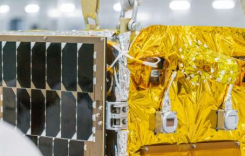PVTIME – A landmark collaboration has been unveiled between the German energy company Trianel, the Swiss energy and infrastructure group BKW AG, and the German sustainable energy asset manager Luxcara. The project involves the development of a 900 MW large-scale energy storage campus in Waltrop, North Rhine-Westphalia. This project is one of the largest storage initiatives in Germany and is set to play a pivotal role in bolstering Europe’s green energy infrastructure, representing a significant stride in the continent’s shift towards renewable energy sources.

Situated on the edge of the Ruhr industrial area, the campus will occupy a former reserve site of the Trianel Lünen coal-fired power plant. This location carries symbolic weight, as the land transitions from being a relic of traditional energy production to becoming a critical hub that will support the future energy system, a tangible example of how industrial heritage can be repurposed to facilitate sustainable progress.
With a total power capacity of 900 MW, the campus will comprise three 300 MW storage units, delivering an overall energy storage capacity of 1,800 MWh. The campus will utilise lithium iron phosphate battery technology with a modular, container-based design to ensure scalability and adaptability. Construction is scheduled to begin in 2026, with operations expected to commence in Q1 2028. There is also potential for further expansion, with an additional 600 MW of capacity possible in future.
This initiative is more than just a straightforward engineering project; it is a strategic move in the energy sector, built on close collaboration between those with expertise in capital, development and operations. As the lead planner and developer, Trianel is spearheading the project with a focus on fostering an open partnership model to involve more municipal utilities. Trianel’s Executive Board Spokesperson, Sven Becker, emphasised that, as renewable energy penetration increases, ensuring grid flexibility has become a key challenge. Energy storage acts as a bridge between markets and grids, ensuring system stability. This emphasises the growing importance of storage as an ‘infrastructure-grade’ component in Germany’s future energy dispatch systems, with smaller utilities set to play a greater role in large-scale energy projects.
Luxcara, acting as asset manager, has already secured 520 MW of storage capacity. The company’s investment manager, Alexander Lüntzel, noted that the strategic choice of location, targeting areas where grid flexibility is most needed and repurposing former coal plant land, aligns with investment return goals while demonstrating a long-term commitment to the energy transition. This reflects a broader trend in capital markets, where ‘flexibility assets’ are increasingly coming into focus. Investors are prioritising policy stability, site legality and environmental compatibility, thus establishing green infrastructure as a reliable anchor for long-term capital.
BKW AG will provide end-to-end support, covering planning, construction, operation, and energy trading. The group’s CEO, Robert Itschner, explained that large-scale storage systems are vital for enabling the flexible dispatch of renewable energy, with BKW leveraging its expertise across the entire transformation chain. This shift reflects a change in the value chains of energy companies, moving from “single-point power sales” to comprehensive “full-chain services”, as firms seek to establish long-term operational revenue models rather than engaging in one-off projects.
Beyond the project itself, three key trends are evident. Firstly, land use is being reimagined for green renewal, with coal-fired sites being repurposed to support renewable energy. This showcases Germany’s coordinated approach to aligning land policy with structural changes to the energy sector. Secondly, there has been a shift from centralised power plants to distributed storage systems. Despite its size, the campus uses modular, scalable technology that is better suited to the demands of integrating high levels of renewable energy into the grid. Thirdly, investment logic is shifting towards ‘flexibility assets’, with energy capital increasingly focusing on storage, dispatch and flexibility as critical new resources, thereby redefining traditional approaches to energy investment.
As plans progress, the Waltrop storage campus symbolises Europe’s commitment to transforming industrial heritage into a foundation for a sustainable energy future. It blends innovation, collaboration and strategic foresight to address the challenges of the energy transition.

Scan the QR code to follow PVTIME official account on Wechat for latest news on PV+ES











